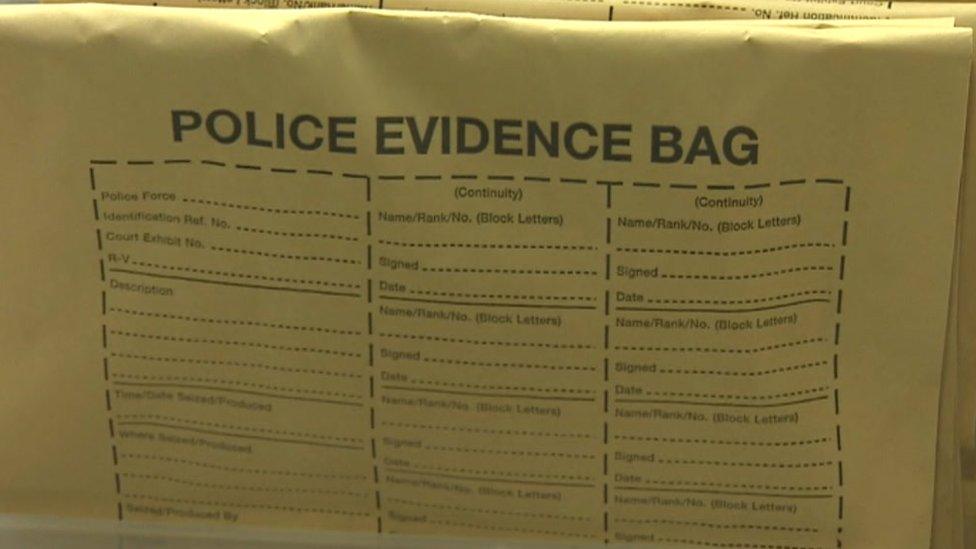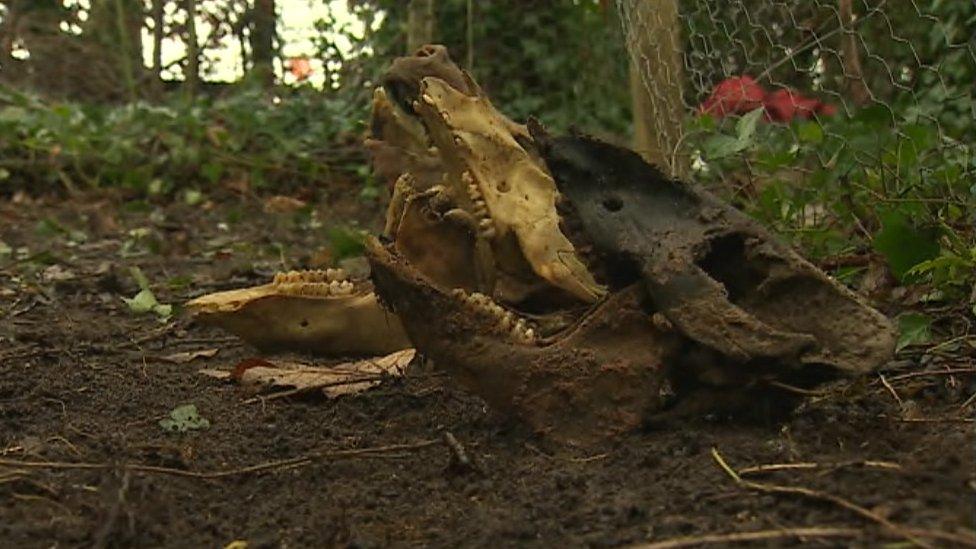'Body farm' studies decomposing remains at Glyndwr University
- Published

WARNING: Picture below may be upsetting for some readers
Forensic science students are studying how animal remains decompose in a bid to help solve criminal investigations.
They will use pig carcasses and smaller animals in a "body farm" as the results will be comparable with human remains.
The aim is to be able to provide data which would help police with murder investigations and non-criminal cases where bodies are found.
Glyndwr University forensic science lecturer Amy Rattenbury said the research was important.
"It focuses on on a area called forensic taphonomy which is essentially all about decomposition," she told BBC Wales.
"It's trying to learn what's happened to a body from the point of death to the point of recovery. It helps us determine something called post mortem interval - how long somebody has been dead for.
"It's really important for the police in terms of their investigation, so if we can say this person has been dead for say, six weeks, and somebody who's a main suspect has an alibi for six weeks ago, then we know we can rule them out of the investigation.

The animal parts are left to decompose in different conditions and temperatures
"But we're also understanding more how decomposition works and how it can affect the body and can help us try to identify the remains once they have been recovered."
The "body farm" is understood to be the first of its kind in Wales and is in a wooded area near the university's campus in Wrexham.
Ms Rattenbury said the reaction to the research ranged from one extreme to the others but added the animals are ethically sourced from licensed abattoirs.
"The majority of the research that we do are using pigs simply because they are most anatomically similar to human remains," she said.
"At the moment we can't do human remains research in forensic science in the UK simply because there's too many legal and ethical hoops to try and jump through.
"We have to do that research in order to progress the science."